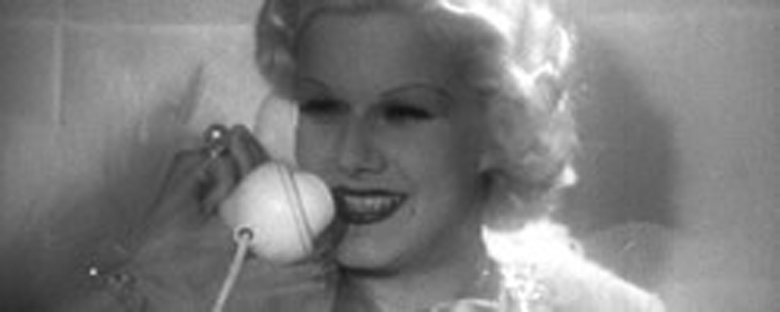Reviews
George Cukor
USA, 1933
Credits
Review by Beth Gilligan
Posted on 03 April 2005
Source Warner Bros. DVD
MGM, the studio that once boasted having “more stars than the heavens,” certainly can’t be accused of ever putting this entity to waste. Having scooped up a Best Picture Oscar in 1932 for the star-packed, turgid [Garbo’s cry of “I vant to be alone!” notwithstanding, of course] melodrama Grand Hotel, studio brass allowed producer David O. Selznick to try the same formula – with a dash of comedy – the following year with Dinner at Eight.
Based on the play by George Kaufman & Edna Ferber and directed by George Cukor, the film has aged about as gracefully as Marie Dressler’s stage diva Carlotta Vance, which is not saying much. I don’t mean to denigrate Dressler’s considerable comedic talent, which livens up scenes that would have otherwise fallen flat, but it’s difficult to keep a straight face when watching her spew dramatic lines like, “That’s the unfortunate thing about death. So terribly final! Even the young can’t do anything about it.”
Dressler’s character is one of the many who cross paths in New York in the hours leading up to a lavish dinner party thrown by Mr. & Mrs. Oliver Jordan, played by Lionel Barrymore and Billie Burke. As Mrs. Jordan dizzily goes about her preparations (this includes shrieking at a maid, “I would have particularly liked to have had that ice pick – it’s so dressy!”), her husband toils away at the office, dismayed at his dwindling fortunes.
Meanwhile, across town, the Jordans’ daughter lounges around the hotel room of her lover, Louis Renault, a washed-out, alcoholic movie star played by John Barrymore. Unbeknownst to her parents, she is planning on leaving her earnest fiancée for the actor. Adultery is also the theme of the subplot involving Wallace Beery’s crass tycoon, his platinum blonde, social-climbing wife, and the prominent physician who pays several “house calls” to her bedside.
As these lives clash and converge, the inherent staginess of the material can’t quite be overcome. Cukor favors medium shots throughout the picture, which only serve to emphasize this problem, and shows far greater flair in handling the film’s comic scenes than he does the dramatic ones. The exchanges between Beery and Jean Harlow, who plays his wife, crackle with energy and wit, as do many of the asides by Dressler. Burke’s flaky housewife routine threatens to grow old at any moment, but her cheerful, blithe delivery somehow makes it work.
Though John Barrymore delivers a sympathetic performance as a faded star facing ruin (a role that would prove sadly prophetic in his own life), the heavy-handedness with which his downfall is rendered results in onscreen time being far less memorable than those of his comic counterparts.
Had Dinner at Eight been simply a farce, it may well have found a way to weasel itself into the pantheon of Golden Age Hollywood comedies. As it stands, its star power and brief flashes of humor remain the chief reason for watching this murky blend of comedy and melodrama.
We don’t do comments anymore, but you may contact us here or find us on Twitter or Facebook.



